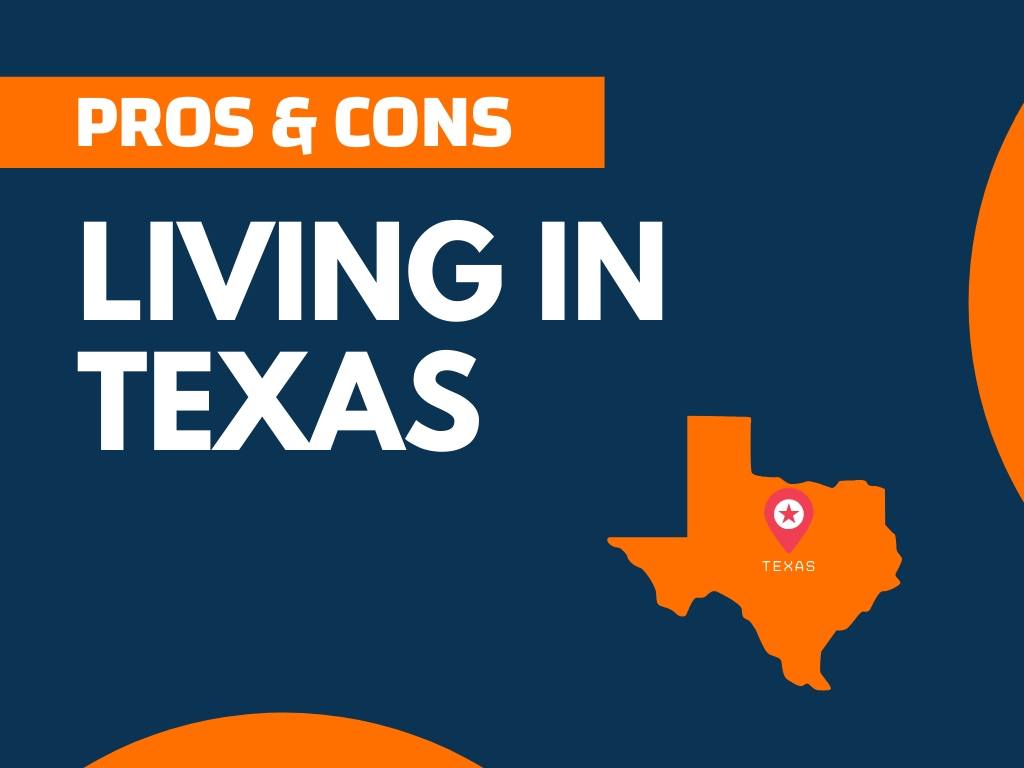The Pros and Cons of Living in Texas
The appeal of Texas weather - despite brutal summers
While Texas summers can be unrelentingly hot and humid, some love that the winters are mild and shorts weather arrives early in the year. With temperatures regularly hitting 100°F or higher from May through September, being outside doing anything physically exerting is a chore. Even simple tasks like gardening or playing with kids outdoors becomes an unpleasant experience. However, some truly enjoy that fall and spring weather arrives early, allowing months of comfortable outdoor activities. Many also appreciate that winters are generally short-lived and mild, rarely bringing freezing temperatures or snow accumulation. For some, the brief winter season is a welcome reprieve from summer’s sweltering heat.

Convenience of travel - when weather permits
At over 268,000 square miles, traveling within Texas requires major time investments. Journeys across the state can span 10-12 hours or more by car. However, the wide-open roads and 75-80 mph speed limits allow for relatively speedy travel when weather cooperates. Favorable conditions throughout much of the year provide opportunities for scenic road trips along farm lands and rolling hills. Popular stops along the way like iconic Texas gas station chain Buc-ee’s offer travelers clean restrooms and a huge selection of snacks. While size can hinder in-state travel at times, the autonomy of road trips and wide-open spaces also charm many residents.
Cultural diversity within a historically conservative state
Despite a reputation for conservatism, Texas cities host cultures from around the world. Places like Houston, Dallas, San Antonio and Austin have thriving immigrant communities that enrich local flavors, arts and values. However, religion also heavily influences politics and lawmaking in much of the state. The ongoing culture clashes, though sometimes tense, also engender spirited debate. Both liberal and conservative viewpoints feel at home in densely-populated urban centers. But rural regions remain steadfastly traditional. This mix creates a nuanced social fabric, for better and worse, depending on personal ideologies.
Financial prospects compared to other states
No state income tax offers major savings for workers. While property taxes fund local services and school districts, costs vary widely by region and home value. Metro areas tend to have higher housing prices but also offer a denser job market. Outside of cities, lower property taxes coupled with energy-related jobs can balance higher earnings potential elsewhere. A 2016 report found Texans had the 7th highest average disposable income in the US. Overall the tax structure makes cost of living very competitive versus other states.
Limited public transportation options statewide
Reliable vehicles are essential in Texas since public transport is scarce statewide. While major cities like Houston, Dallas, San Antonio, and Austin have bus systems, routes are often limited and don’t provide comprehensive coverage. Intercity rail is also lacking throughout most of the massive state. Outside of major metro regions, having a personal car is necessary just to run basic errands. The lack of alternative transit options serves as both burden and freedom, depending on lifestyle needs and preferences.
Natural environment both binds and divides
Vast open spaces define the landscape and leisure activities across Texas. Rural regions remain tied to agriculture and natural resource industries like oil, gas and renewable energy. These close connections to land and its bounty inspire stewardship in some. However, others argue priority has tilted too far toward unchecked industrial use that endangers ecosystems. Coastal and hill country areas draw many inland for camping, fishing and natural scenery. Yet rapid coastal development and droughts straining rivers stir conservation concerns as well. Texans’ relationship with the environment, like many issues, evokes passion on both sides.
Overall affinity for Lone Star State culture and identity
Despite challenges, most native Texans embrace the independent culture and natural beauty of their home. Pride runs deep for the history as a sovereign republic, local heroes and institutions like high school football. Even transplants often adopt this local fervor and sense of opportunity. While some chafe against certain policies or social norms, most see character in overcoming adversities like vast size, searing heat or past disputes. Citizens commonly share traditions of generosity toward others during calamities too. This spirit of resilience and community continues cultivating fierce loyalty to Texas across diverse perspectives within.
